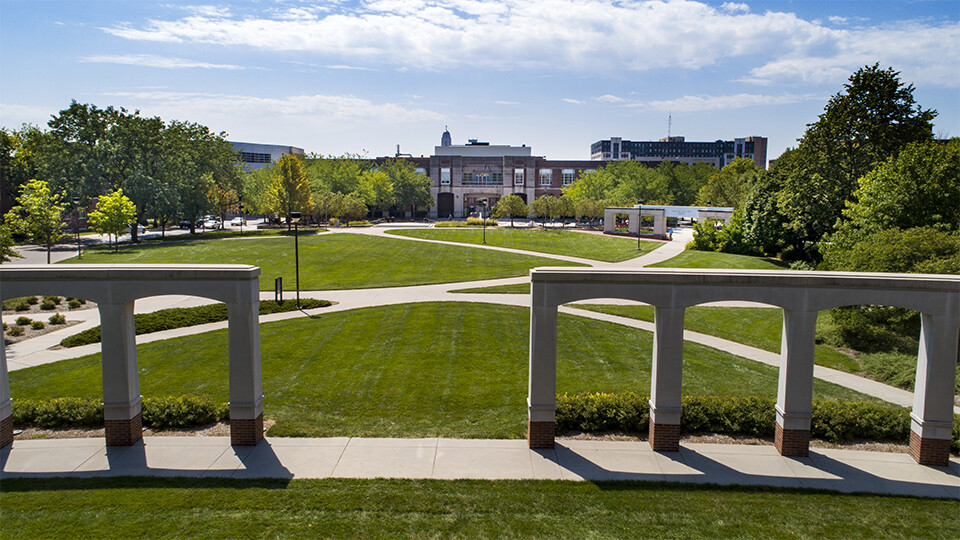
As the world has changed, many students’ summer plans have changed, as well. As Nebraska’s land-grant institution, the University of Nebraska–Lincoln has the responsibility to provide students with expanded access to educational opportunities.
“We recognize that many of our students’ internships, study abroad, employment and travel have been impacted by COVID-19,” said Executive Vice Chancellor Elizabeth Spiller. “While many of these experiences are no longer available to them, we want to make sure alternative educational opportunities are accessible.”
For summer 2020, tuition has been set at the in-person tuition rate for resident and non-resident students, and the university program and facilities fee and online course fee have been waived. Students in professional graduate programs with established program rates will continue with those unchanged.
The university is also offering a program called the Husker Starter Pack, which allows new, first-time students who plan to start at Nebraska in summer or fall 2020 to take a standard three-credit class during the second five-week summer session for more than half off the regular tuition rate.
The Executive Vice Chancellor’s Office has funded proposals by faculty to enhance existing courses and create new special topic courses. Faculty were encouraged to consider “outside of the box” formats, approaches, lengths and delivery models to meet the varying and unique needs of students. Funds were also available from NUOnline for transitioning already scheduled, in-person courses to remote learning or online.
“We were very pleased with the quality and range of proposals from our faculty,” Spiller said. “These courses speak to their creativity and expertise. They really rose to the occasion.”
More than 100 courses have been added to the summer catalog with additional creative opportunities being added for fall, as well. A list of new summer courses can be found on the COVID-19 website. Students can also find them in MyRED under class search using filters for subject and session date.
The new courses vary from addressing the effects of COVID-19 around the world, to missed opportunities because of the pandemic, to supporting students through these challenging times, including:
Saving the World – UHON 298H: This interdisciplinary honors course will use theories and frameworks from international relations, anthropology and public health to discuss what pandemics are, how countries have responded in the past and why countries come together to collaborate. It will involve faculty from the University of Nebraska Medical Center and University of Nebraska–Lincoln, community leaders from across Nebraska,and conversations with people from around the world to discuss COVID-19 and provide a global perspective on current pandemic responses.
Global Pandemic News in the Age of Social Media – JOMC 380: This ACE 9 course is designed to study global pandemic news and is a relevant way for students to exhibit global awareness and knowledge of human diversity through analysis of an issue. Students will learn media literacy life skills by analyzing the spread of verified information and misinformation from global news organizations and social media. The class will include worldwide remote video discussions with journalists and students.
How to be Happy (in College) – RELG 182: In this introduction to the burgeoning field of happiness studies, current scientific research on happiness will be placed in conversation with ancient philosophical and religious teachings, mystics and modern-day religious leaders. Weekly exercises will apply scientific and spiritual happiness cultivation practices to students’ academic, social, physical, emotional and spiritual lives in conjunction with the nine dimensions of Big Red Resilience and Well-being.
Special Topics in Civil Engineering – CIVE 498: This course will provide an experiential learning opportunity that will replicate an internship experience for civil engineering students who did not have an internship or whose internship was canceled because of COVID-19. Faculty will identify real-world projects solicited from community partners, government agencies and industry and guide students through the engineering design process.
Introduction to Zoo and Aquarium Science – NRES 399: Many zoos around the country have canceled internships and employment opportunities because of COVID-19. This new course helps current animal science students maintain momentum with their educational plans and provides career-readiness learning opportunities. It also provides entry-level experience to first-year students interested in the field. The course will use a number of modules developed and hosted by the world-renowned San Diego Zoo.
Digital Research Methods for Humanists – HIST 894: Graduate students who were expecting to do archival and on-site research over the summer are facing travel restrictions due to COVID-19. This pre-session course will help them develop the digital research methods necessary to make progress on their work throughout the summer. Topics include research design and principles, freeware research programs, databases available through the Love and Schmid libraries, and public databases and digital collections by material type — newspapers, government documents, vital statistics, literary and cultural production, and corporate and professional archives.







